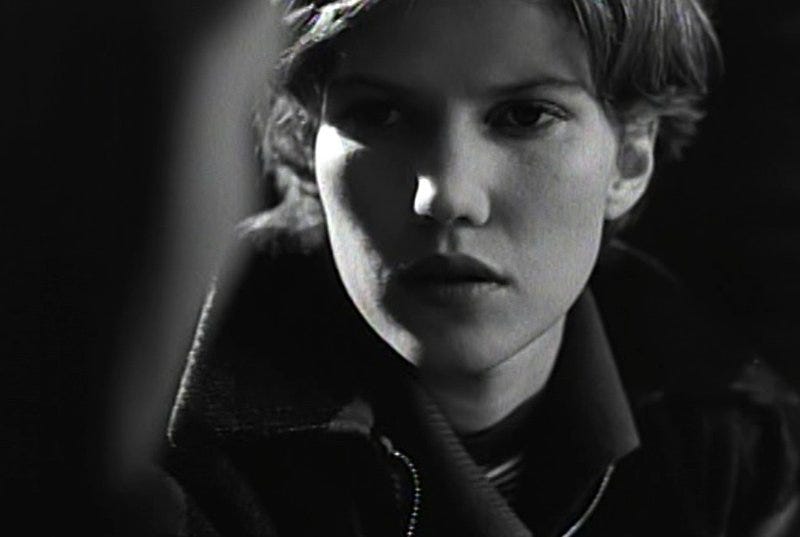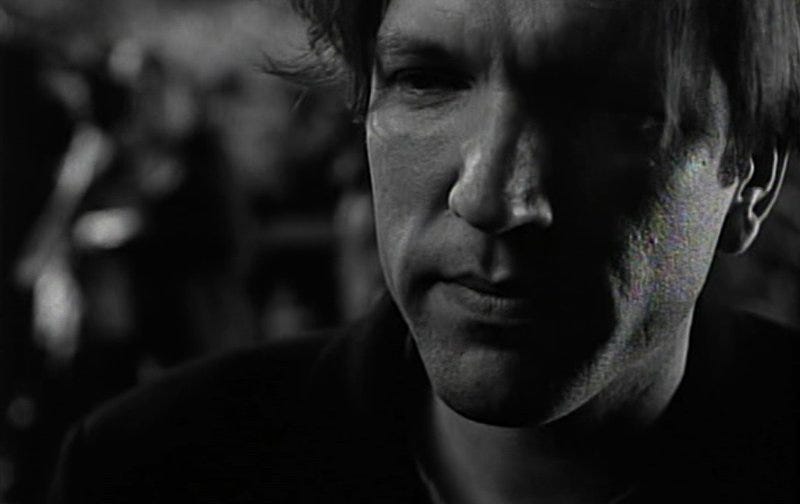Lush-mouthed, raised-eyebrowed, Lower-East-Side-by-way-of-Romania urban vampire Nadja (Elina Löwensohn) moons for those "nights in which the brain lights up like a big city." She shares her compact, melancholy speeches about "the pain of fleeting joy" as readily as a shrug. Director Michael Almereyda has worked on at least a dozen screenplays, from three weeks on Total Recall to an early draft of Wim Wenders' Until the End of the World. But the work that's elementally and elegantly his own are his three features to date, Twister (based on Mary Robison's novel, "Oh!"), the fifty-five minute festival-circuit Pixelvision gem of New York slacker romance, Another Girl Another Planet, and now the shimmering black-and-white sleepwalker-reverie of Nadja. The most memorably poetic aspect of Almereyda's work is his way with words, or his words with ways—funny, conversational dialogue, filled with as many cross-purposes as Mamet or Pinter but hilariously cadenced and delightfully fresh, like overheard coffeeshop banter.
Almereyda is hesitant to separate the savories of the spoken word from the flow of a film. "Dialogue just spills out," he says. "But my films are usually about miscommunication on some more-or-less obvious level. People are usually talking at cross-purposes, either contradicting themselves or each other. So when I think about dialogue, it's really in relation to what's happening in the movie and in terms of what actions are underway.”
"I squirm under the label of being a writer," Almereyda says. "I think of movies more in terms of directing—dialogue is not free-floating or autonomous. Movies have to do with simultaneous actions or events. But there is the intimacy you get from being able to see someone's face up close while they're saying something that can completely undermine what they [seem to be] saying. The dialogue is a current or a rhythm, but it's not..." Almereyda hesitates. "Dialogue is a way of connecting the dots, but the real meaning, to me, is seldom in the dialogue." Another pause. "When people are saying something? They're usually doing something else."





